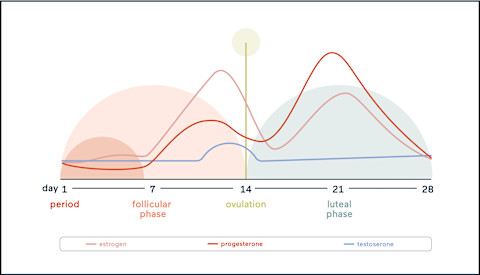Your scalp is pretty smart (but you already knew that, right?). Example: When the skin up top becomes too dry, your sebaceous glands go into overdrive to replenish those precious, natural oils—which, in turn, can make your hair appear greasy.
It’s a common predicament for those who over-wash their hair, and it tends to result in a vicious cycle: Your hair feels greasy, so you shampoo more frequently, which strips the scalp of moisture and spurs even more sebum production. As frustrating as this scenario sounds, try to take the uptick in oil as a sign that your skin is really trying to help you.
To halt the cycle, the key is to simply train your scalp to produce less oil in the first place. We repeat: Your scalp is smart, and it’s on your side. As for how to teach your scalp to quit the excess oil? Here’s a clever trick I learned from NYC-based hairstylist Jenna Pitocco.
A trick to train your hair to be less greasy.
In a solo experiment, Pitocco discovered that if she wet her hair between washes (without any product whatsoever), she was able to effectively lift debris from her scalp without stripping it of moisture. “I would still get it wet, but instead of washing it, I would rub really well at my scalp,” she says. “That would still break up all the dirt, grime, grease, and everything.”
Since those with oily scalps don’t typically fare too well with co-washing (it’s best for drier hair types that need extra moisture), this technique follows the same beat without adding more slip to the strands. You could even throw in a proper co-wash once a week for a hit of moisture, then use just water for your other rinse days.
“That’s how to train your scalp to produce less oil when you want to wash your hair less frequently,” Pitocco adds, especially in the humid summer months when the thought of skipping a wash sounds, uh, grimy. You’re still able to scrub off all the sweat and buildup with your fingertips, but you’re not using any actual surfactants to cleanse.
Overtime, Pitocco adds, you can extend the time between those water rinses as you train your scalp. “I don’t even have to wet my scalp and scrub at it the way I used to,” she notes. “I’m getting my hair wet less, and my scalp isn’t getting as greasy as it used to.” At this point, you’ll know that you and your scalp are on the same page.
Of course, you’ll still want to fold in a shampoo every so often to really give your scalp a good cleanse. The timing differs depending on your hair type, environment, and lifestyle, but know that the rinse trick is not meant to last forever (and in terms of product, Pitocco is partial to Hairstory’s New Wash, as it’s detergent-free).
To train your hair to be less oily, you won’t get far without scalp care. You may know that over-washing is a common culprit of oil-slick roots, but it can be difficult to give up a wash day during warmer months—if this sounds like you, try Pitocco’s trick to wet and scrub the scalp, sans product. It may take more or less time to adjust to the new rinse schedule (everyone’s skin is unique!), but at the risk of sounding like a broken record: Your scalp is smart, and it will learn pretty quickly.







